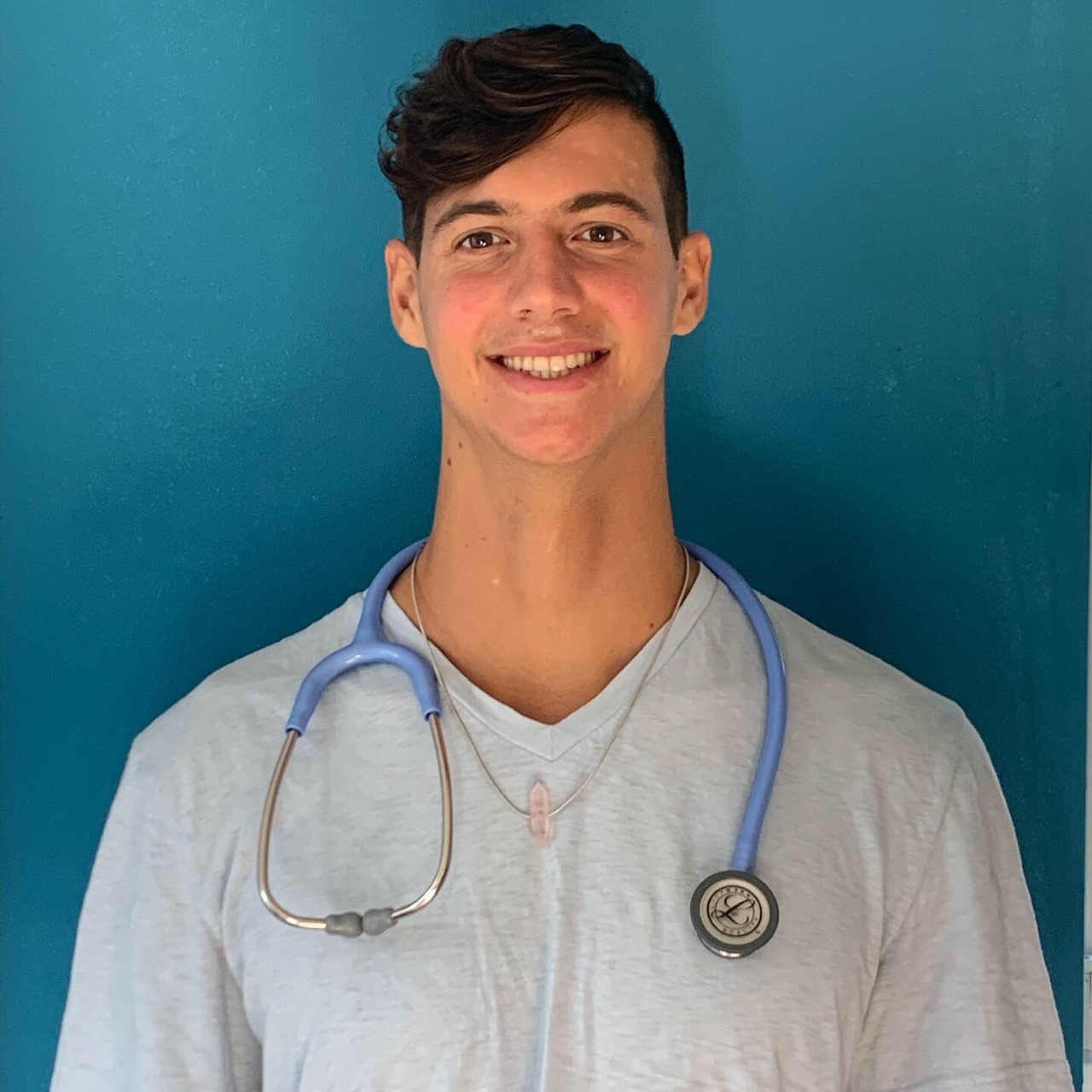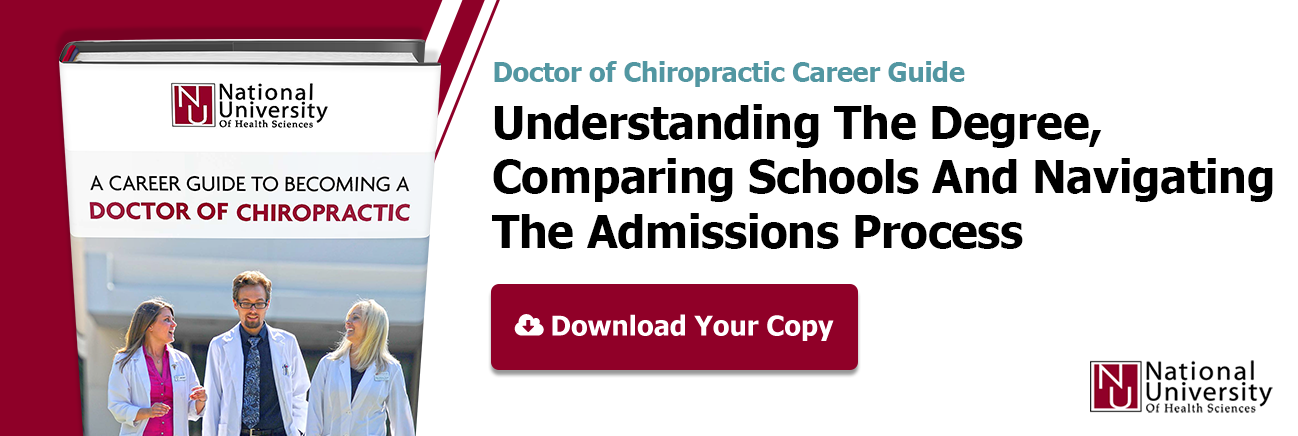For Austin Tchikatilov, a chiropractic medicine student at National University of Health Sciences, pursuing sports medicine was the perfect way to combine two of his biggest passions: sports and helping others.

Throughout his life, Tchikatilov excelled at multiple sports including college basketball. Most recently, these skills helped him earn three gold medals in pickleball at the APP Next Gen in Dallas.
Since he started a career in health care, he has continued to find success.
Tchikatilov already runs his own practice as a holistic health and performance coach, offering personalized lifestyle and nutrition advice along with specific training regimens depending on a patient’s goals. He holds a Master of Science in Nutrition and Functional Medicine from the University of Western States along with certifications in holistic nutrition, pain-free performance, psychological fitness and functional movement.
As he works toward his Doctor of Chiropractic at NUHS, Tchikatilov is planning to expand the scope of his practice into primary care and functional medicine.
His time as an elite athlete offers a clear advantage in understanding the types of health care popular among athletes today. From the perspective of an elite athlete and current health coach, Tchikatilov shares insight on what the future of sports medicine holds and how it will shape his practice.
Being part of a medical team
Among athletes, seeing multiple doctors is common. The medical teams behind professional sports teams often have a variety of practitioners available. This is because integrative medicine allows athletes to target all aspects of their health. They’re also able to treat a specific issue using various approaches and find which one works best.
Into the future, Tchikatilov expects to work with practitioners in various disciplines both inside and outside his practice. Some of the popular disciplines within sports medicine include acupuncture, chiropractic medicine, energy medicine, massage therapy, etc.
For years, integrative medicine has been a hallmark of an NUHS education. Integrative medicine was one of the deciding factors in Tchikatilov’s choice of school.
“I love the integrative aspect of NUHS at the campus it shares with St. Petersburg University,” he said. “It also has a small family vibe.”
A focus on nutrition
More professional athletes are starting to recognize the importance of nutrition, especially when it is individualized to their personal needs. Once they experience the benefits of “clean eating,” they rarely look back.
“They’re starting to see that they perform better and are even using money from their contracts to hire chefs to prepare the best types of food,” Tchikatilov said.
Since working with athletes is all about optimizing performance, nutrition is one change that Tchikatilov believes can have the most powerful impact.
Increased interest in telemedicine visits
Although Tchikatilov’s practice is based in Florida, he’s not limiting his patient base to just those in the local community. As part of his current practice, he already sees patients virtually from across the country.
In order to reach a much wider audience, he has worked hard to establish a strong social media presence. Tchikatilov makes regular posts about his current sports activities on Instagram and also writes a health-focused blog.
The importance of mental health
Today, the stigma that once existed surrounding mental health issues continues to lessen. In particular, on social media, more people are opening up about their own struggles and finding support, Tchikatilov said.
Tchikatilov, who holds an undergraduate degree in psychology and a certification as a psychological fitness specialist, has made mental health a focus at his practice.
“An athlete’s mental state can hugely impact the way they play,” he said.
Athletes often face heightened stressors due to competing. At his practice, Tchikatilov provides training to help athletes deal with this stress.
“Activities that improve mental clarity like meditation, yoga and practicing gratitude can be a game changer for athletes and is documented through research,” Tchikatilov said.
More technology for biohacking health
While attending a few recent conferences, Tchikatilov said he was surprised at the amount of technology available to help with biohacking, a new lifestyle movement aimed at optimizing health.
Some examples of biohacking methods include nutrient IVs, genome testing, red light therapy, cold tubs, cryotherapy, etc. All of which can help players improve their sports performance and recover from injury faster.
Within professional sports, natural medicine has become the new frontline approach that is offering athletes longer more sustainable results. Professional sport teams continue to add chiropractic physicians to medical teams for a reason. If you’re considering a career in sports medicine, the future for natural medicine physicians like chiropractors is promising.





0 Comments